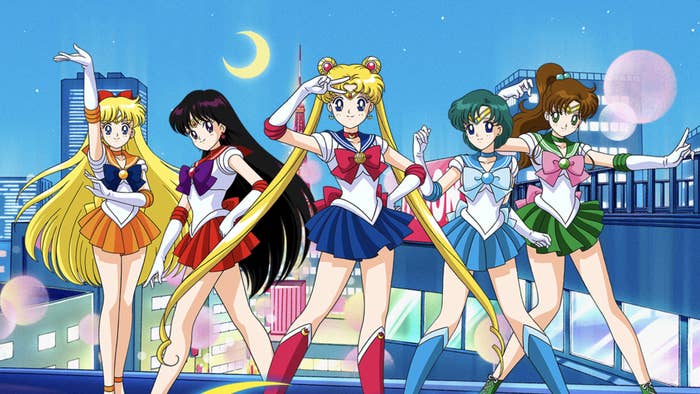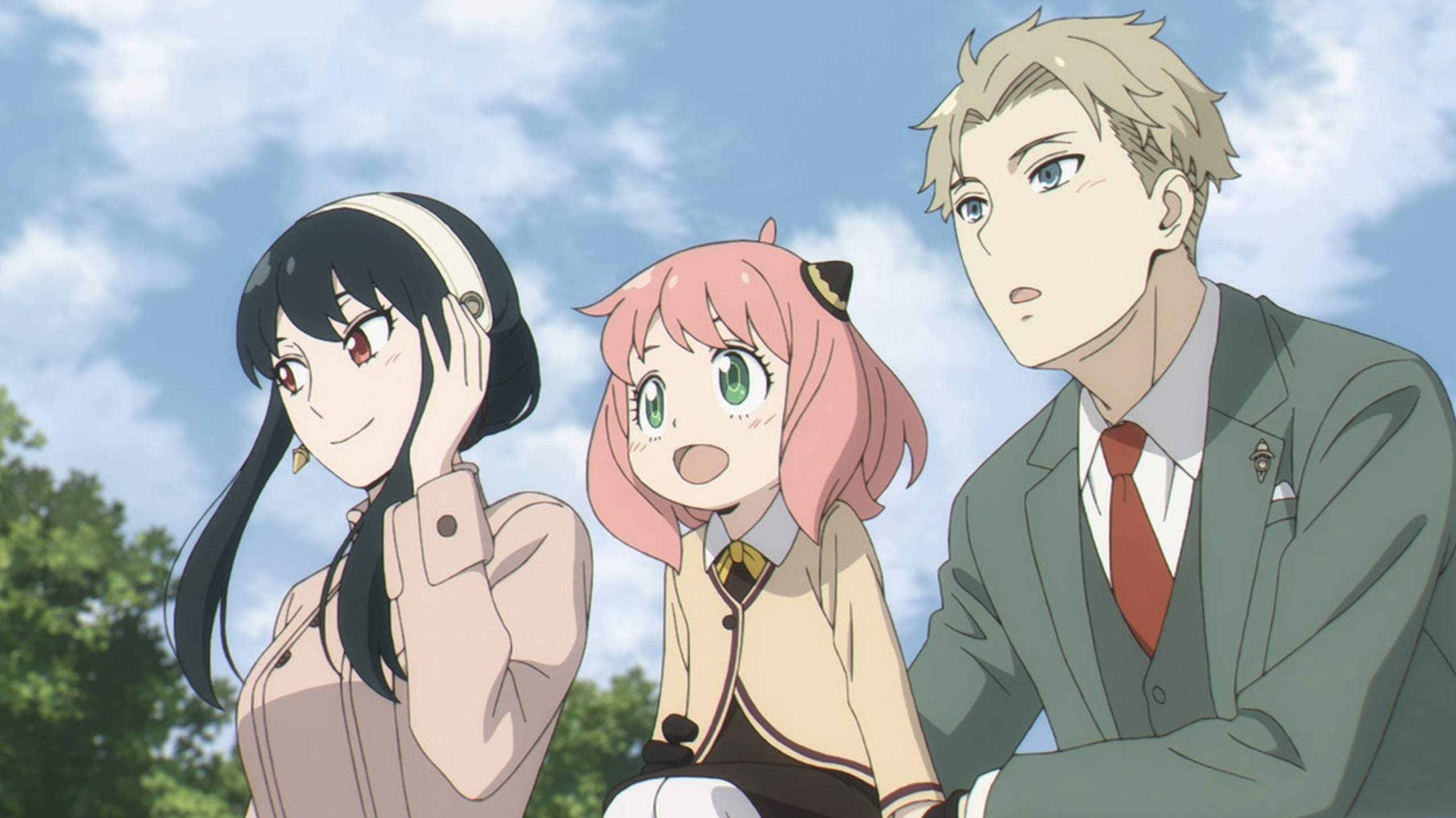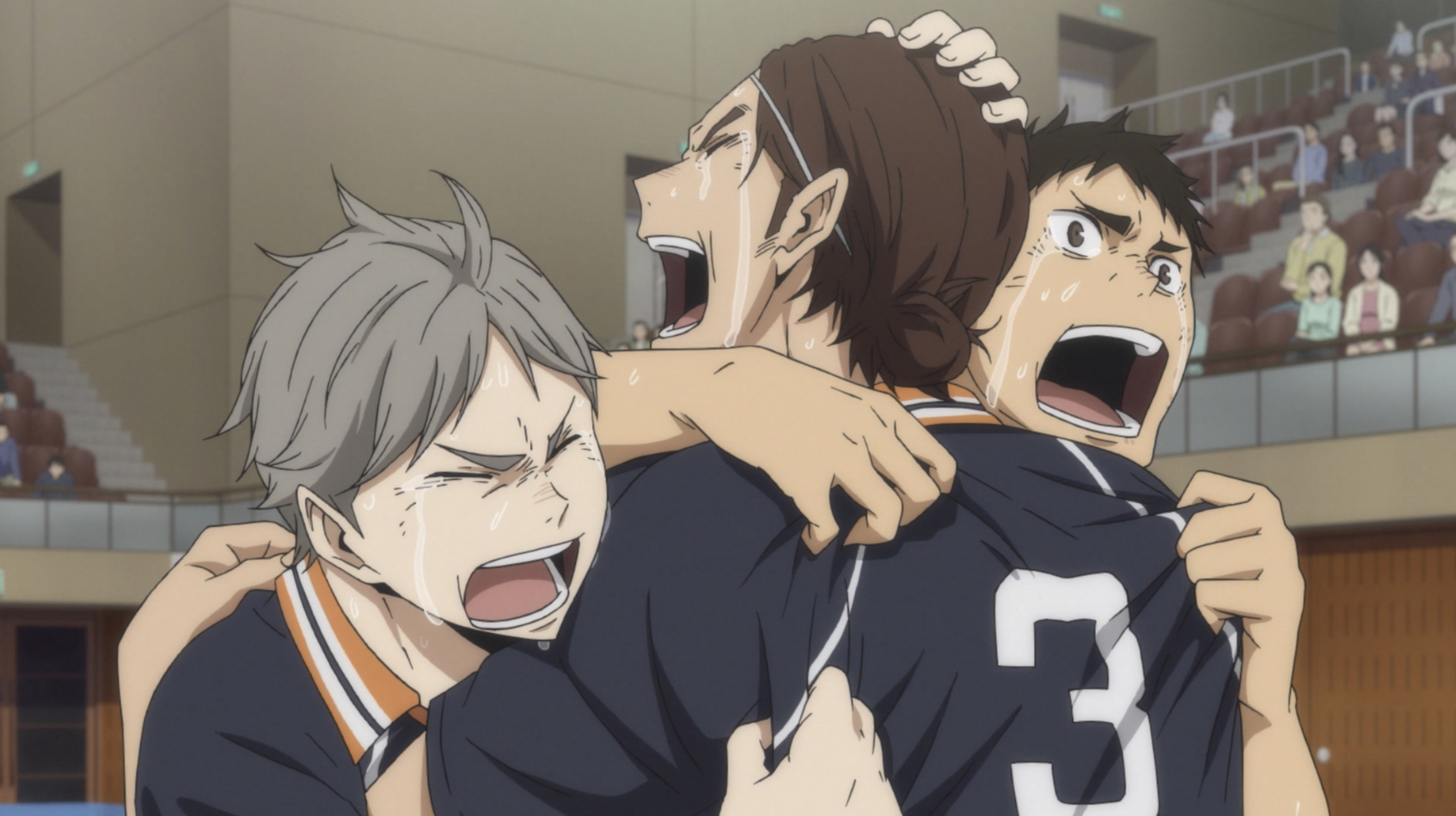Growing up in the '00s, the mornings before school were reserved for watching the latest episodes of Pokémon, Yu-Gi-Oh!, Digimon, Dragon Ball Z, Sailor Moon and Cardcaptor Sakura. Even if it meant waking up earlier than usual, you dared not miss an episode — because remember, back before streaming services were a thing, there was simply no way to replay it. I still have vivid memories of my dad comforting me when I accidentally slept in and missed an important episode of Pokémon, resulting in a full-on cry session — no judgment, I was 10.

But even though these anime were international hits around the world, come schooltime you were seen as "the weird kid" or labeled a "geek" for daring to like Japanese animation. Fast forward to 2023 and now you can spot people proudly wearing t-shirts and other merchandise emblazoned with their favourite anime characters (it's me, I'm people); you can scroll through TikTok and see creators posting incredible transitions involving cosplay, as well as discussing the parallels between the FIFA World Cup and Blue Lock, a popular sports anime; you hear of celebrities like Michael B. Jordan, Keanu Reeves, Hunter Schafer, Maitreyi Ramakrishnan and Megan Thee Stallion publicly talk about their love for anime; and you read about Demon Slayer: Mugen Train grossing over $507 million at the worldwide box office, making it the highest-grossing film of 2020 and the first time a non-Hollywood production topped the annual box office. Oh, and let’s not forget about the success of other recent anime films like Jujutsu Kaisen 0, Your Name, Weathering With You and One Piece Film: Red — all of which have broken numerous box office records.
Things have changed. While anime has always been popular in Japan, it's reached a new level of global popularity that has propelled it to the top of pop culture conversations. Still don't believe me? In 2021, the anime adaptations of Jujutsu Kaisen, Demon Slayer: Kimetsu no Yaiba and Tokyo Revengers were among the top 10 most discussed TV shows worldwide on Twitter, with Demon Slayer ranking higher than Squid Game — yep, you know, that Netflix series that EVERYONE was talking about for months.
So, how did we get here? Brady McCollum, Chief Operating Officer for Crunchyroll — an anime streaming service that was formed in 2006 and currently has 120 million active users — believes it was a combination of factors that ignited the switch for anime moving from once-niche fandoms into the mainstream. In an interview with BuzzFeed Australia, he said: "Last year [in 2022], 300 million people streamed anime. That's an incredible amount, especially when you think of the world's population that's showing interest in anime. Obviously, there was the pandemic where everyone had the opportunity to be introduced or reintroduced to new anime, including some really strong and popular titles. Whether it be a Demon Slayer, a Jujutsu Kaisen or a Spy x Family, all of these have been opportunities for folks to get reintroduced and just understand the richness that anime provides."

Adding to this, Gita Rebbapragada, Chief Marketing Officer for Crunchyroll, agreed that there's never been a better time to become an anime fan because of how easily accessible it is — not only on Crunchyroll, but on other popular streaming services like Netflix, Disney+ and Prime Video, which all contain anime titles. "It's fairly ubiquitous — so I think more people are exposed to it than ever before."
Speaking to McCollum's point, I was one of the many people who rediscovered their passion and love for anime during the COVID-19 pandemic and subsequent lockdowns. Anime — in particular, one called Haikyuu (if you know, you know) — helped me escape the crushing anxiety of living in a world filled with countless problems and gave me a reason to smile, to laugh and forget about the stress of the week. It allowed me to belong to a community where I could freely express myself and — most importantly — imparted an overwhelming sense of comfort that gave me the strength to navigate through the darkness of 2020.
In response to hearing about my experience with anime, Rebbapragada said: "We hear stories like that of how anime inspires people a lot. The other thing we hear is that anime taught me something or anime taught me something about myself. It helped me feel connected, so that is also a big part of why I think anime's growing impact is truly an amazing phenomenon. With this growth, it's still connecting so many different types of people and delivering that type of self-discovery and self-awareness. It's amazing and really important — especially for some people during phases of their life. Anime can be an absolute game-changer in terms of their own identity and that's pretty remarkable. You can't say that about many fandoms."

Diverse storytelling has always been a strong point associated with anime. From shonen (think action-driven stories with male leads like in Attack On Titan, Naruto and Chainsaw Man) to shoujo (more romance and fantasy-driven, like Sailor Moon and Ouran High School Host Club), slice of life (realistic and relatable stories as seen in K-On! and Non Non Biyori), isekai (when a character is suddenly transported from their world into a new or unfamiliar one, like in Sword Art Online) and everything in between, the wide range of genres present within anime drive home the message that it can be for anyone and everyone — you just need to find out what you enjoy.
But with anime experiencing such a meteoric rise in popularity around the world, it's now more important than ever to acknowledge the diversity that's also present among its fans. Historically, fandoms within anime — particularly for Western audiences — have been dominated by white CIS males, resulting in a toxic culture of gatekeeping, sexism, racism and homophobia. While this isn't representative of the entire anime community, animation studios, streaming platforms, writers and fans all have a crucial part to play in breaking down these traditional barriers and making anime not only more accessible to a wider audience, but also more enjoyable. For example, Jujutsu Kaisen was universally praised for revolutionising the shonen genre through its well-written and complex female characters like Nobara, Maki and Mai — who are all outspoken, confident and powerful.

Streaming service Crunchyroll has also used its large social platform to showcase underrepresented fan voices and content creators through its #28DaysOfBlackCosplay initiative for Black History Month. And then, of course, there's the Crunchyroll Anime Awards, which is an annual event dedicated to honouring the industry's best shows, voice actors, animators and creators of the past year. In 2023, the awards show was hosted in Tokyo, Japan for the first time and had big-name celebrities attached, including actor Finn Wolfhard, streamers Valkyrae and Sykkuno, director Robert Rodriguez and WWE superstar Zelina Vega. What's notable about this mixture of celebrities is how diverse and different they are, each with their own cultural identity and set of fans, but unified through their love and passion for anime — which once again shows that anyone and everyone can be an anime fan.
In saying that, there's still work to be done. The anime community needs to work toward better diversity, inclusion and representation in all areas. That means uplifting underrepresented voices, championing change where needed and breaking down traditional gatekeepers that prevent newcomers. As mentioned before, anyone and everyone should be able to fully embrace the joy of anime, its depth and variety of stories, and the feelings of belonging that come with being part of its community.
